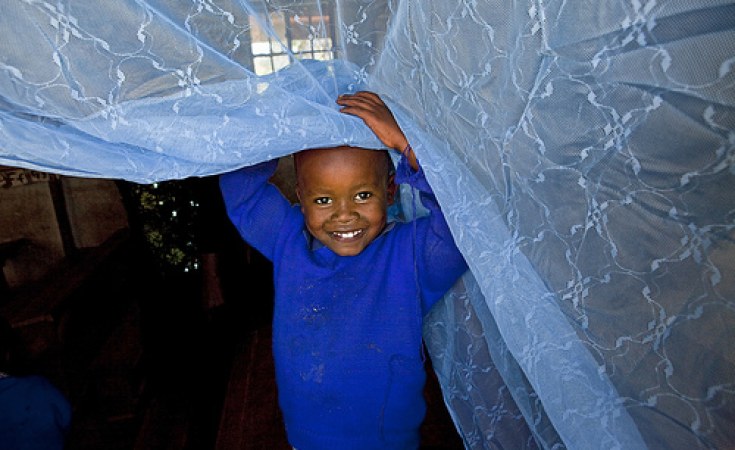Atlanta — The way Dr. Carlos (Kent) Campbell sees it, the world is on the brink of something great in the battle against malaria – a fight that Campbell has been waging for nearly four decades against one of the world's most stubborn and cunning parasites.
On Sunday, his life's work was recognized at the American Society of Tropical Medicine and Hygiene's 61st annual meeting being held in Atlanta, where he was the recipient of the distinguished Joseph Augustin LePrince Medal in recognition of outstanding work in the field of malariology.
"We are now witnessing a true renaissance, an awakening, about malaria," said Campbell in accepting the award. "That has happened as a result of a huge global effort."
Campbell has been instrumental in developing innovative malaria control strategies, most recently through his leadership at the Malaria Control and Evaluation Partnership in Africa (Macepa), a program funded by the Bill & Melinda Gates Foundation at PATH - a global health organization based in Seattle, Washington in the United States.
In Zambia, Macepa in 2005 began working closely with the government to implement the Scale-up for Impact (Sufi) approach to rapidly deliver proven malaria tools through a strategic, integrated approach to achieve the maximum health impact.
Efforts included nationwide distribution of insecticide-treated bed nets, the selective use of indoor spraying of insecticides, and the provision of new diagnostics and medications. Progress and impact were documented.
As a result, there was a 50-percent reduction in malaria cases, hospitalizations and disease prevalence in Zambian children between 2006 and 2008. The Sufi approach has been implemented in more than 40 African countries and has become the standard for malaria control. Now Campbell and others see eradication of the disease as a possibility - something that for decades was regarded as impossible by much of the global health community
Campbell began his malaria work in the 1970s in El Salvador for the U.S. Centers for Disease Control and Prevention (CDC). Eventually he became chief of the CDC's malaria branch at the agency's Atlanta headquarters, at a time when the unit was small and poorly resourced. He lobbied for malaria to become a global health priority and secured major funding to tackle it. That increased support allowed the CDC to implement programs that convinced skeptics that more attention to the disease - which kills Africans, mostly children, every year - would pay off.
Campbell also has served as the senior malaria advisor to Unicef and contributed to the development of the Africa strategy of Roll Back Malaria - an international umbrella group that has crafted a coordinated approach out of diverse - often competing - projects. He served as a consultant, particularly on malaria, to the Bill & Melinda Gates Foundation Infectious Diseases Program in 2003.
Of receiving the Augustin LePrince Medal, Campbell told AllAfrica that he was pleased with the award, but said the people he has worked with over the years were equally deserving.
"One thing that has always given me the greatest amount of pleasure is that I seem to always be able to work with an amazing group of people," he said. "The fact that I'm being singled out and honored is probably the fact that this award is not for 50 people - it's for one person. But the award actually is a reflection of what a group of people that I've worked with in several different settings have actually accomplished."


